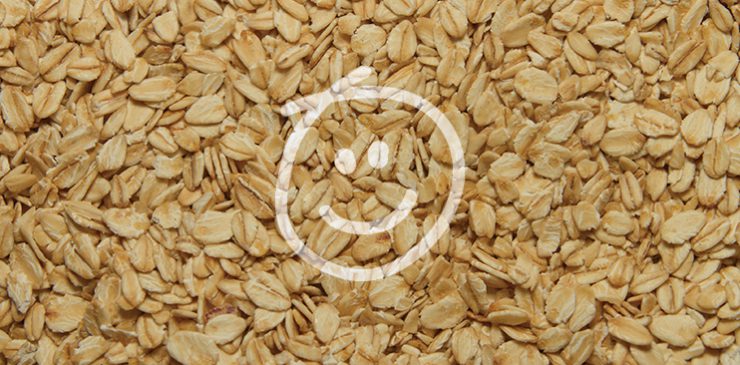This is particularly important for individuals with spinal cord injuries (SCI) to be aware of because we are at higher risk of experiencing conditions such as depression and anxiety. It is estimated that people with SCI are five times more likely to experience depression than the general population and between 13 to 44% experience anxiety.
 These conditions can negatively impact our ability to function in all areas of our lives, including school, work and relationships.
These conditions can negatively impact our ability to function in all areas of our lives, including school, work and relationships.
On top of this, people who have sustained a SCI often have an accompanying brain injury (TBI). Studies show that 53% of individuals with TBI experience major depressive disorder within the first year following injury, with over 26% of experiencing a lifetime prevalence (Bombardier et.al 2010 & Jorge et al 2007). Furthermore, individuals with major depressive disorder are more likely to report co-existing anxiety disorders.
So, what’s food got to do with it? A lot. Research demonstrates that poor diet is linked to poor mental health. For example, eating fried foods or foods that contain too much refined sugar and processed grains is linked to depression (Banta et al 2019).
Unfortunately, the diets of people living with chronic disability often consist of these types of unhealthy foods for a multitude of reasons, such as limited access to fresh produce, fatigue, decreased physical function/ability to prepare healthy meals, financial restraints and emotional binge eating habits.
Here are four simple nutrition steps you can take to not only help protect yourself from developing mood disorders, but enhance your overall feelings of well-being.
-
Support Your Gut Health.
Numerous factors connect the gastrointestinal tract to the brain, including the microbiome which is composed of trillions of bacteria (Shanahan 1999). These “good” gut bacteria can have a marked effect of GABA levels in the brain. GABA is a neurotransmitter that is involved in regulating anxiety, sleep and relaxation (American Society for Microbiology 2012).
- Consume fibre-rich foods such as whole grains and legumes (beans and peas) to support the growth of these healthy intestinal bacteria.
- Eat probiotic (good bacteria) rich foods such as sauerkraut and yogurt.
- Take a daily probiotic supplement.
-
Reduce Inflammation.
Trauma, stress, the intake of certain medications and poor diet can contribute to the inflammation in the body. For these reasons people living with chronic conditions, such as TBI and SCI, tend to have systemic inflammation.
Accumulating evidence indicates that inflammatory pathways may contribute to the development of depression (Miller & Raison 2016).
Eating specific nutrients however can help reduce inflammation in the body and in turn influence mood. For example, a study on people with SCI who ate an anti- inflammatory diet and took anti-inflammatory nutritional supplements for three months experienced a 28% reduction in inflammatory markers called cytokines and these subjects demonstrated a 55% decrease in their depression scores (Allison 2015).
- Eat fish 3-4 times a week. Fish contains omega 3 fatty acids, which have anti- inflammatory properties.
- Take Omega 3 supplements. Studies demonstrate the anti-inflammatory effects, particularly oral administration of EPA & DHA, can be useful as therapeutic agents in disorders with an inflammatory component (Note: always check with your physician before taking Omega 3 supplements).
- Cook with turmeric. A compound called curcumin found in this spice exerts an anti-inflammatory effect by suppressing pro-inflammatory cytokines. (Bodnar et al 2018: Philips Calder 2010 and Yadav et al 2014).
-
Increase Fruits & Vegetables.
A recent study revealed that eating four extra portions of fruits and vegetables can boost people’s mental health. (Redzo M. 2019).
- Blueberries are especially high in anti-inflammatory polyphenols called anthocyanins.
- Take Vitamin D. Canadian researchers found a strong correlation between depression and a lack of vitamin D. (Dept. of Psychiatry & Behavioral Neurosciences, St. Joseph’s Hospital, Hamilton, Ontario Canada).
- Take Vitamin D supplements as directed by your health care provider.
Get your day started with this mood lifting breakfast loaded with fruit, fibre and healthy fats!
 Oatmeal with Berries & Nuts
Oatmeal with Berries & Nuts
1 cup steel cut oats
3 cups water
Pinch sea salt
½ cup blueberries
¼ cup walnuts
drizzle pure maple syrup
- Add the oats and water to a small saucepan and bring to a boil. Reduce the heat to a simmer, and let cook for about 25 minutes, or until the oats are tender enough for your liking.
- Serve with berries and walnuts and drizzle with pure maple syrup.






